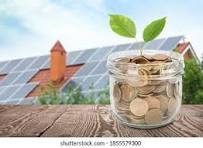In the contemporary era, as concerns about climate change and environmental sustainability continue to gain momentum, the adoption of renewable energy sources has become a key focal point. Among these, solar energy panels have emerged as a popular and viable option for homeowners seeking to not only reduce their carbon footprint but also save money on electricity bills. In this article, we will delve into the economic aspects of solar panels and explore how they can be a cost-effective investment for individuals and households.
The Initial Investment:
One of the primary factors that often dissuades potential solar panel adopters is the perceived high initial cost. However, it's crucial to view this as a long-term investment rather than an immediate expense. While the upfront cost may seem substantial, government incentives, tax credits, and rebates are frequently available to ease the financial burden. Additionally, the decreasing cost of solar technology over the years has made the initial investment more accessible for a broader range of consumers.
Reduced Electricity Bills:
Once solar panels are installed, they begin generating electricity from the abundant and free energy provided by the sun. This means that homeowners can significantly reduce their reliance on grid-supplied electricity, resulting in lower monthly electricity bills. In some cases, depending on the size of the solar installation and local sunlight conditions, households may even become net-zero energy consumers, essentially eliminating their electricity bills altogether.
Return on Investment (ROI):
The economic benefits of solar panels extend beyond mere bill reduction. Solar panels offer a tangible return on investment over time. The payback period, which is the time it takes for the savings on electricity bills to equal the initial investment, has substantially decreased in recent years. Many solar panel systems now boast relatively short payback periods, sometimes as little as a few years, making them an attractive financial proposition for homeowners.
Home Value Appreciation:
Installing solar panels can enhance the overall value of a home. Numerous studies have shown that properties equipped with solar panel systems tend to sell at higher prices compared to those without. Homebuyers are increasingly recognizing the long-term cost savings and environmental benefits associated with solar energy, making solar-equipped homes more desirable in the real estate market. Therefore, the initial investment in solar powered panels can be considered an investment in the property's overall value.
Net Metering:
Many regions offer net metering programs, allowing solar panel owners to sell excess electricity back to the grid. This not only provides an additional source of income but also serves as a mechanism for further reducing electricity bills. During times when the solar panels generate more electricity than the household consumes, the surplus is fed back into the grid, earning credits that can be used when the panels are less productive, such as during cloudy days or nighttime.
Environmental and Social Benefits:
While the focus of this article is on the economic advantages of solar panels, it's essential to highlight the broader benefits.
Solar energy significantly reduces carbon emissions, contributing to a cleaner environment and a more sustainable future. Additionally, as more individuals adopt solar energy, the collective impact contributes to a reduction in overall greenhouse gas emissions, making a positive contribution to the global fight against climate change.
Conclusion:
In conclusion, the decision to invest in solar and energy panels is a multifaceted one that extends beyond environmental consciousness. The economic benefits, ranging from reduced electricity bills to increased home value and potential income through net metering, make solar panels a financially sound choice. With advancements in technology and increasing accessibility, the initial cost barrier is becoming less prohibitive. As we navigate towards a future where renewable energy is integral to our daily lives, solar panels stand out as a beacon of economic prudence, offering a sustainable and cost-effective solution for homeowners
Tagged:
Solar energy ,
Solar panels ,
Solar and energy ,
Energy saving tips ,
solar powered
Recent Posts
· Cabinets Shaker Doors: Styles and Design Ideas
· Curtain Length for 9 Foot Ceilings: Finding the Perfect Fit
· Which Is Better: Engineered Wood or Solid Wood Flooring?
· Home Depot Bathroom Sink: Everything You Need to Know
· Modern Bathroom Vanities for Tiny Bathrooms
Contact us
· Email: latestbulletins@gmail.com










